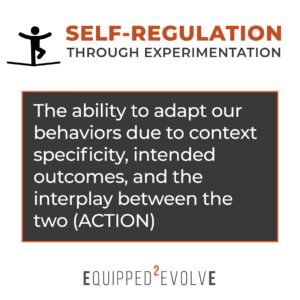I am not an expert on expertise. Nonetheless, I do have a Compelling Point of View on the matter of expertise.
Expertise requires depth and breadth of domain knowledge, repetition, application, insight, improvisation, and discernment.
Richie Norton wrote this incredible post called Discernment Will Be the Key Competency of This Decade. In this article, he distinguishes between discerners and flat truthers:
- Discerners: those who understand the truth that merges at the center of many perspectives.
- Flat-truthers: those who only see their self-interest perspective.
I am easily frustrated and perturbed by those who claim expertise even though they are merely parroting one perspective. What is even worse is that these individuals are not even aware of the other ways in which their perspective can be alternatively conceptualized and applied because they are under the assumption that the roots of their knowledge base is one of a kind. Moreover, they believe that their perspective is foolproof and completely original in what it aims to accomplish. This single minded perspective is naive, limiting, and dangerous. Nonetheless, many cling to and merge their identity with a single perspective because it feels more secure and controllable.
The irony about expertise is that it isn’t meant to make you feel secure and controllable. Expertise is meant to prepare you to tolerate and make sense of competing truths and inconclusive data points. We often covet what we presume to be the ease that accompanies expertise because of how in control and confident experts appear to be. The ease that we witness is often a manifestation of the humility they have earned through being a student of their craft for so long. Their confidence has nothing to do with control and everything to do with being open and skilled enough to see patterns between seemingly disparate perspectives and pursuits.
You will transform yourself and others when you consider your blindspots and reflect on these questions:
- what am I missing?
- what can be added?
- what can be subtracted?
- what are other ways of articulating the same principles?
- what are the similarities between this and another perspective within the same domain?
- what is my compelling point of view within this domain and what influenced it?
- what have I changed my mind about recently?
- what do I foresee changing my mind about in the future?
“One of the great challenges of the world is knowing enough about a subject to think you’re right, BUT not enough about a subject to know you’re wrong.”
Neil deGrasse Tyson




